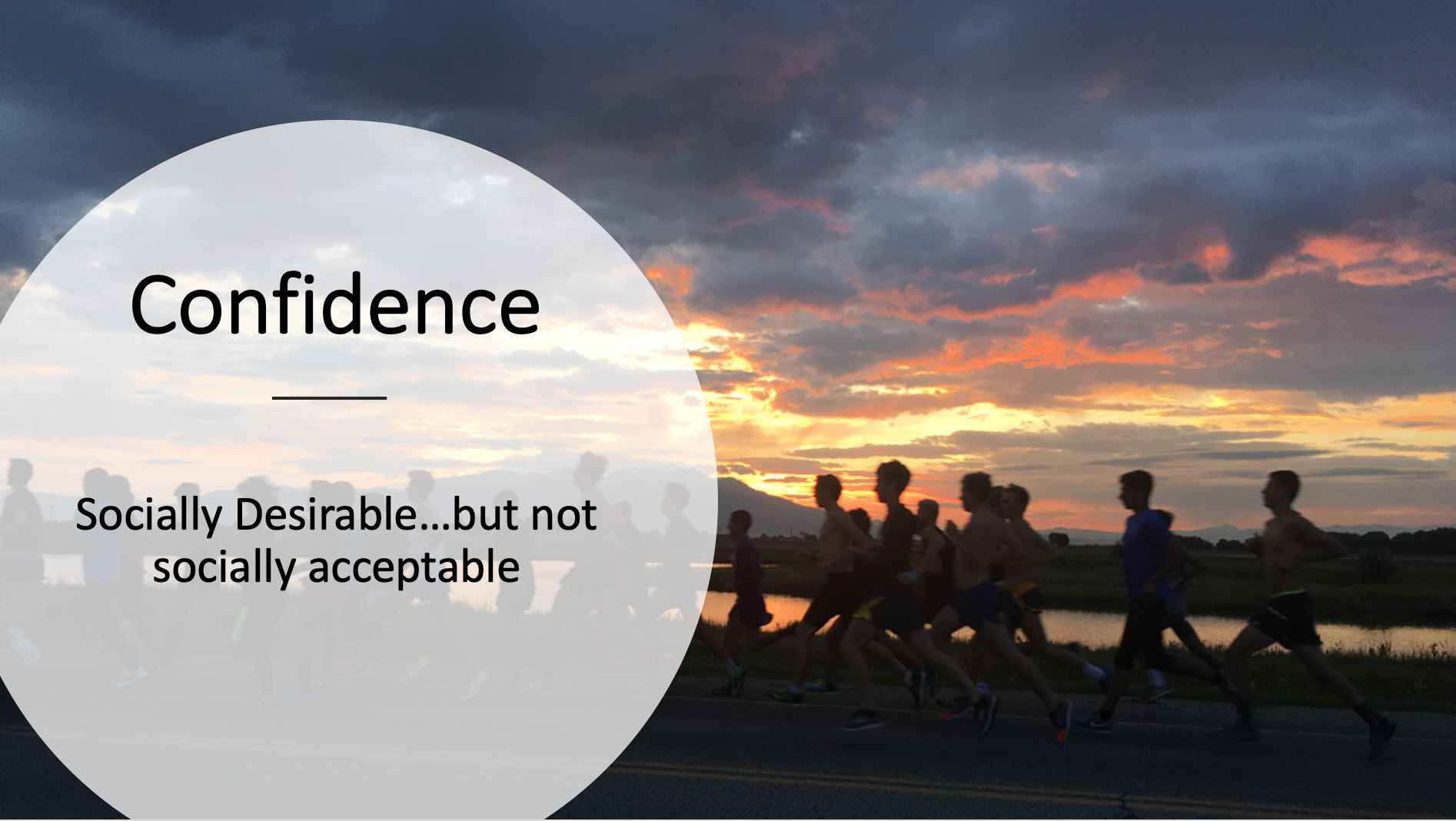Dr. Lennie Waite and Dr. Brian Zuleger members of USATF Sport Psychology discuss athlete identity and how to develop a healthy identity and impacts on performance in sport and life.
Confident or Cocky?
Confidence: It’s like this mythical orb athletes are constantly chasing. We tend to look for confidence in all the wrong places, external sources (outcomes, previous training/performances, coaches, teammates, family, fans, superstitions, etc.) this constant chase can be exhausting. Society wants confident people yet the moment you think and act confident society labels you cocky. This makes it difficult for people as they are in this constant inner battle of trying to be confident and humble at the same time. What I’ve seen happen a lot is that we err on the side of being overly humble out of fear of being labeled cocky. This limits people from being their best self. You need to have confidence to give yourself the best chance to win (in sport and life). Winners tend to get more leeway from society in being able to think and act confidently, because we associate confidence with winning but even winners can’t escape the judgement of those not “in the arena.” If you think and act confident and are not winning people will give you a hard time as well. Tell you things like “you not that good, you need to be realistic.” This reinforces people to be fearful of being confident. So what does one do? You can be confident and humble, it takes intentional training and practice to stay true to yourself and believe. Developing confidence from the inside out is key. Quiet confidence, you do not have to tell anyone, but if they ask, respectfully say “yes, I am confident I can win” doesn’t mean you will, but gives you the best chance to. Regardless of outcome your confidence remains, you continue to work to get better because your confidence is not dependent on outcomes or external sources. Mental strength needs to be consistently trained just like every other aspect of training for performance. Trained or untrained? Which are you?
Mental Strength Training and Skiing the Troll Wall with Kilian Jornet
The Troll Wall is the tallest vertical rock face in Europe in which we can find the iconic Fiva Route, that has never been skied before Kilian Jornet gave it a go in 2018. Watch this video (below) from Salomon TV to experience what it is like from his perspective. In the video Kilian addresses the fear and danger involved with falling in a situation like this. “You know the consequences of a fall, all the time, it can happen, but if I think that I can fall, then I need to train more and prepare better.” Quality practice is a concept within mental strength training, where we teach people how to prepare to perform. Quality practice is about practicing with a purpose. The purpose is preparing to perform. Many people practice and practice and get into the competition and practice some more, instead of performing and competing. There is a saying in sport “the separation is in the preparation.” This is never more true than in a situation like this where Kilian is skiing a line with very high consequences and little to no room for error. He has to be physically and mentally prepared to ski this line. In the video he discussed that he has spent two years preparing. He scouted the line, read maps, explored the history, researched the timing of the perfect conditions to make it possible and visualized skiing the route. He had climbed it before, mentally and physically preparing for what he will face. He has skied other steep routes previously in order to mentally and physically prepare. When people accomplish “first ever” feats like skiing the Troll Wall, it is not by accident, they have intentionally trained and prepared both physically and mentally to perform in that exact situation. When it comes to having mental strength, people are either trained or untrained. Which are you?



